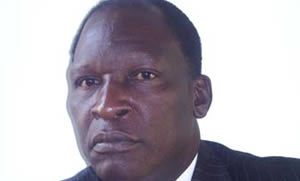UK gives Zim judicial system thumbs up

the case in which businessman Jayesh Shah is claiming US$300 million damages from an international bank.
Shah is suing HSBC Bank for financial losses after the bank, in 2006-07, reported his request – to transfer US$28 million from his account with the bank to another account in Geneva – to the Serious Organised Crime Agency on suspicion of money laundering.
The case can now go to trial after the Court of Appeal in the UK ruled recently in favour of Shah.
HSBC Bank had brought an application seeking security for costs of 282 607 British pounds from Shah.
The bank had claimed that if litigation went ahead it was not going to be able to recover their costs against Shah.
For that reason the bank wanted Shah to pay costs before he could have a right to prosecute his claim in the British Courts.
A local lawyer, Advocate Lewis Uriri placed an affidavit explaining that Zimbabwe had a functional judicial system and that an order for costs could be made in the UK and enforced in Zimbabwe against Shah’s assets.
The bank’s lawyers had argued that Zimbabwe did not have a functional legal system and that the judges were beholden to the Executive.
This, they argued, would cause problems in enforcing the judgment in Zimbabwe.
But in his ruling, Justice Davis disagreed with the bank’s assertion.
He found that Zimbabwe has a functional judicial system and that no contrary evidence had been placed by any advocate practising in Zimbabwe to support the bank’s negative view on the country’s legal processes.
“For its part, the defendant bank has put no evidence of any Zimbabwean advocate to rebut what Mr Uriri says as to the applicable procedures or comment on any specific difficulty in enforceability so far as the bank is concerned.
“Instead, the defendant bank has put in a quantity of what might, at least in the Administrative Court, be described as objective country guidance material indicating, regrettably, that in Zimbabwe the rule of law currently has but a very weak hold; and in particular that many of its high court judges are beholden to and act in accordance with the wishes of the government,” said Justice Davis.
For that reason the court accepted Advocate Uriri’s affidavit on the status of the country’s legal system and threw out the application for security for costs.
Despite earlier reluctance, Advocate Thabani Mpofu commented squarely on the ruling.
“It’s a disciplined judgment which refuses to borrow from political rhetoric. It is a judgment steeped firmly in legal principle and generates, one might say, a lot of good will on an international plane in so far as our judicial processes are concerned,” said Adv Mpofu.
Another lawyer Mr Terrence Hussein said the ruling is an acknowledgement that Zimbabwe has functional legal structures, which has always been the case, despite the West’s attempt to mislead the world on the country’s judicial processes.
“It’s a recognition by the UK court that there are proper structures in Zimbabwe where legal disputes can be settled,” said Mr Hussein.









Comments